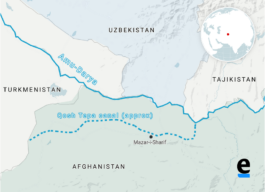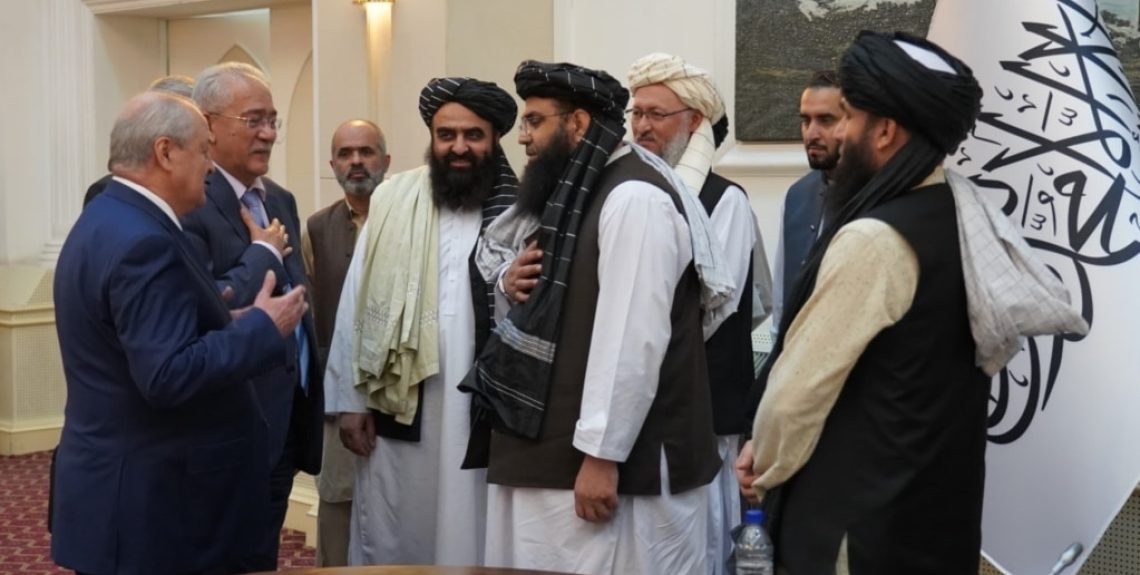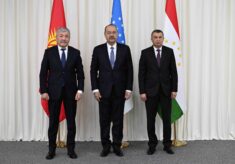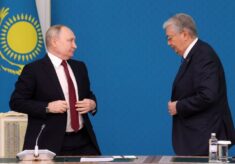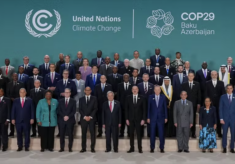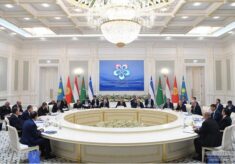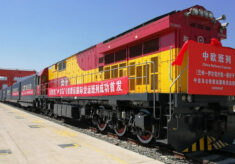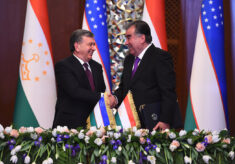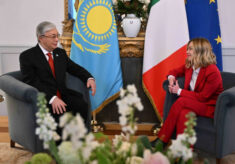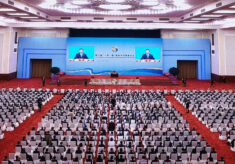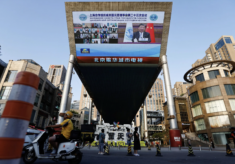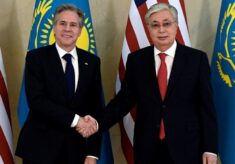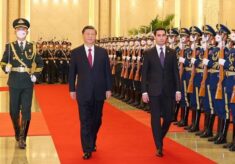Following Taliban return to power in August 2021, Central Asian countries have necessarily had to find a modus vivendi with the new government in Afghanistan, with the purpose to preserve regional security and stability as a key precondition to implement some trade and energy corridors conceived to cross Afghanistan. After two years, we can observe that Central Asian republics have privileged a conciliatory approach with the Talibans: avoiding panic and isolationist tendencies (as during the first Taliban regime) and promoting instead a political dialogue aimed at the normalization of the bilateral relations with the “old enemies” (S. F. Starr, S.E. Cornell, Stepping Up to the “Agency Challenge” – Central Asian Diplomacy in a Time of Troubles, Silk Road Paper, Central Asia-Caucasus Institute & Silk Road Studies Program, July 2023, pp. 29-30).
Among Central Asian states, only Tajikistan went against this trend, perceiving Kabul as a threat to regional stability: Tajik President Rahmon would recognize the new government, only if it becomes more inclusive, representing Tajiks and other ethnic minorities, while now Taliban government includes only Pashtun. Also, the four remaining Central Asian states have avoided to officially recognize the legitimacy of the Taliban government, but they have started diplomatic talks and concluded trade agreements to involve the country in the regional cooperation.
In August 2023, for instance, Kazakhstan signed commercial deals worth 200 million dollars, mainly to supply Afghanistan with grain and flour (A. Kumenov, Kazakhstan signs $200 million in contracts with Afghanistan, Eurasianet, August 5, 2023).
Afghanistan represents a relevant topic in the Uzbek foreign policy undertaken by President Mirziyoyev, who did not change approach when the Taliban took power. Tashkent is strongly interested in the creation of the Trans-Afghan railway, crossing the country and then reaching Pakistan, starting from the Termez-Hairaton-Mazar I Sharif railway segment, which is the only existent connection among Central Asian states and Afghanistan. In January 2022 high-level officials of the three involved countries had a meeting in Tashkent to better define the project, even if the Taliban presence remains a problem in order to attract international investments.
Moreover, Uzbekistan is its biggest electricity supplier and one of the main trade partners. Turkmenistan has maintained an open political dialogue with Taliban which have expressed their support for the realization of the TAPI gas pipeline project (conceived to deliver Turkmen gas to Pakistan and India crossing Afghanistan), a cornerstone for the diversification strategy of gas exports undertaken by Turkmen president to rebalance its huge reliance on Chinese markets.
Unlike the past and overcoming security and stability hindrances, Taliban officially declared their commitment to provide security for the TAPI project, eventually deploying a 30.000-member security force along the Afghan route (Taliban Regime To Deploy 30,000 Troops To Resume Work On The TAPI Gas Pipeline Project, Pipeline Technological Journal, January 17, 2022)
If this cooperation and dialogue efforts appear as a positive evolution for establishing new relations in Central Asia, there are however several unsolved problems and obstacles that could negatively affect this trend. Firstly, in spite of their promises, Taliban appear not be able to provide regional security by avoiding that terrorist groups spread instability beyond Afghan borders. As a matter of fact, in April and May 2022, the Islamic State Khorasan Province (ISKP) launched rocket attacks from the Afghan territory targeting the Termez (Uzbekistan) and Panj districts (Tajikistan), alarming those governments about Kabul’s weak border control, thus undermining further cooperation (L. Webber, ISKP Expands its Focus Toward Central Asia, Terrorism Monitor Volume: 21 Issue: 8, April 14, 2023).
Tajik-Afghan relations remain heavily deteriorated, considering that Dushanbe is hosting and supporting the Afghan Tajik-dominated anti-Taliban National Resistance Force (NRF). Furthermore, Tajikistan perceives as a security threat the presence of the Tehrik-e-Taliban Tajikistan Islamist fighters (the so-called Tajiks Taliban) along the shared border, since they are in charge of the security in five districts belonging to Afghanistan’s Badakhshan province (S. Ramachandran, Tajikistan Faces Threat from Tajik Taliban, Central Asia and Caucaus Analyst, March 27, 2023).
